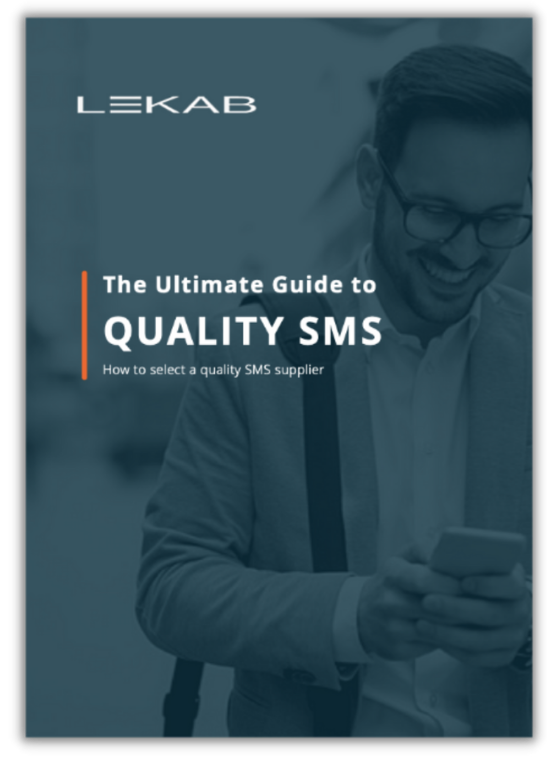
Read more about quality SMS in our guide
Quality SMS providers build secure and stable direct connections to mobile operators, with prepaid interconnection fees with a delivery guarantee. Quality SMS is the obvious choice for businesses with an important text message to send, and who want to be sure that it is delivered on time.
LEKAB provides you with high-quality SMS delivery worldwide. Direct integration with our system allows you to automate many processes related to sending of A2P SMS messages. Download our guide to read more!
